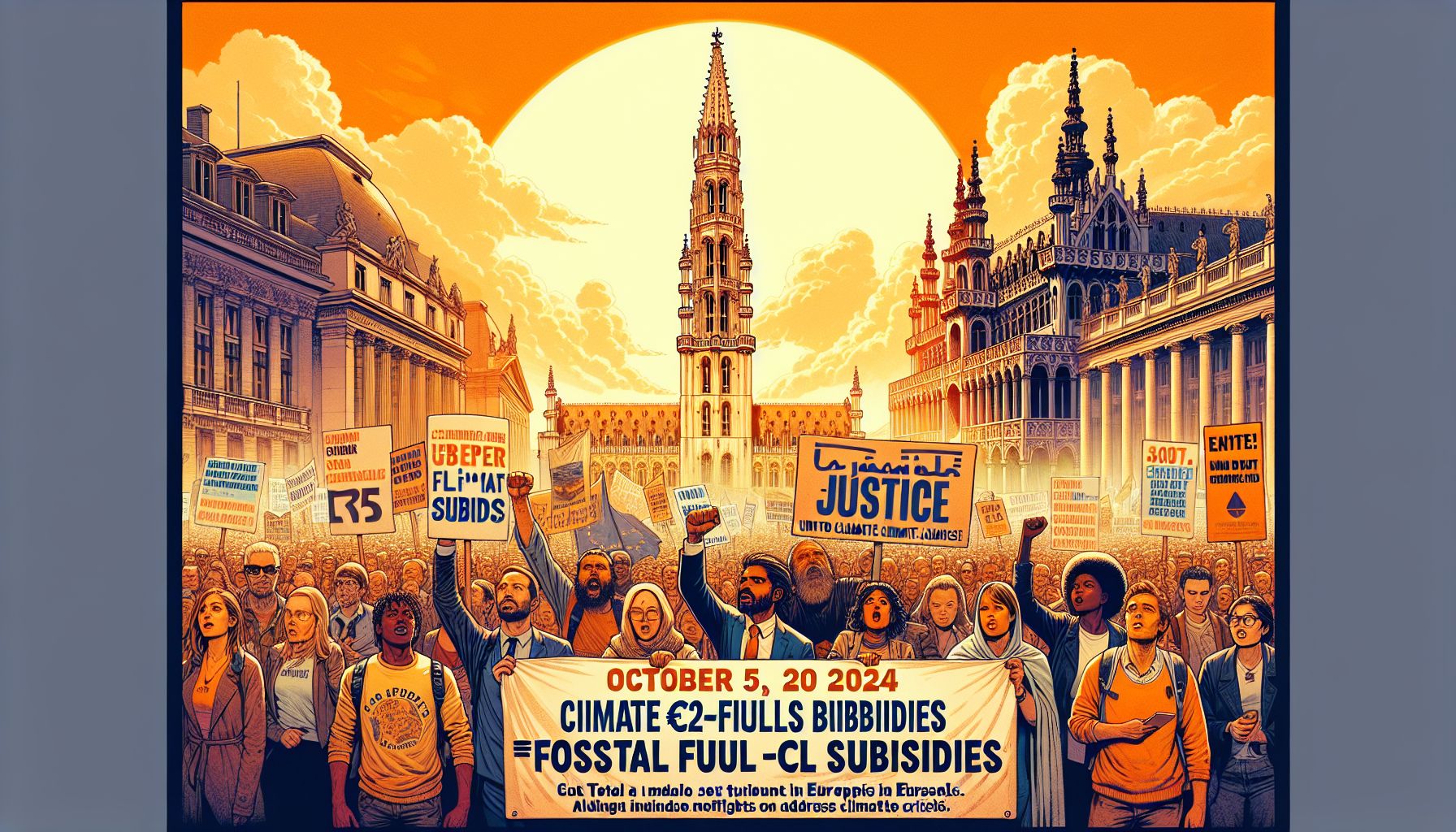European Climate Activists Unite Against Fossil Fuel Subsidies

Brussels, Monday, 23 September 2024.
On October 5, 2024, European climate and social justice movements will converge in Brussels to protest fossil fuel subsidies. United for Climate Justice demands an immediate end to these subsidies, which totaled €405 billion in Europe in 2023, arguing they undermine efforts to address the climate crisis.
A Unified Front for Climate Justice
The protest, organized by United for Climate Justice (UCJ), is set to bring together a diverse coalition of groups from across Europe. UCJ’s call for action comes as European governments continue to allocate substantial financial support to the fossil fuel industry, despite growing evidence of its detrimental impact on the environment and public health. The event aims to spotlight the urgency of redirecting these funds towards sustainable energy solutions.
The Financial and Environmental Costs
In 2023, Europe allocated at least €405 billion in subsidies to the fossil fuel industry, part of a global total of €6.27 trillion. These subsidies not only finance the continued extraction and use of fossil fuels but also undermine other efforts to combat the climate crisis. According to UCJ, the doubling of these subsidies within the European Union in 2022 alone highlights the disconnect between policymakers’ rhetoric on climate action and their financial priorities[1].
CAN Europe and Legal Actions
In addition to street protests, climate advocacy groups like the Climate Action Network (CAN) Europe are utilizing legal avenues to drive change. CAN Europe, known for its extensive network of over 200 member organizations across 40 European countries, has taken the European Commission to court to compel more ambitious climate policies. Their legal actions underscore the widespread frustration with the slow pace of governmental response to the growing climate emergency[2].
Audi Factory Protests: A Case Study
The situation at the Audi factory in Brussels serves as a microcosm of the broader challenges and tensions in Europe’s green transition. On September 16, 2024, around 200 workers protested the potential closure of the plant, which has been a key site for the production of electric vehicles (EVs) since 2018. The factory faces closure due to declining demand for EVs and competition from China, highlighting the complex interplay between economic viability and environmental sustainability[3].
Global Context and Local Actions
The Brussels protest is part of a larger global movement demanding urgent climate action. Recent youth-led marches in cities like Berlin, Rio de Janeiro, and New Delhi have reiterated the message that current efforts are insufficient. Activists worldwide are pushing for systemic changes, including making polluters pay for environmental damage and ending subsidies for fossil fuels. The upcoming UN summits on sea level rise and future sustainability will be critical in assessing global commitments to these goals[4].
Conclusion: A Call to Action
As the October 5 protest approaches, United for Climate Justice and its allies hope to galvanize public support and pressure policymakers to take meaningful action. By ending fossil fuel subsidies, Europe can make significant strides in addressing the climate crisis and setting an example for the rest of the world. The stakes are high, and the demand for immediate, substantive change is clear.

